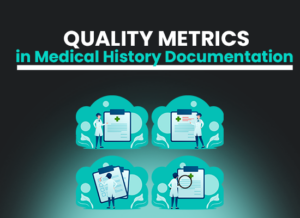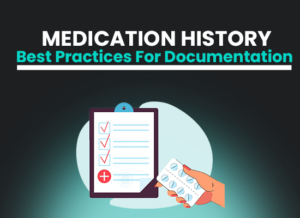GDPR Compliance Checklist: Steps Every Business Should Follow
- November 14, 2024

Table of Contents
GDPR (General Data Protection Regulation) has become a crucial framework for ensuring data privacy and security across businesses worldwide. With increasing concerns over how personal data is handled, organizations are now required to follow strict guidelines to protect consumer information. Compliance with GDPR not only helps businesses avoid hefty fines but also boosts consumer trust, fosters transparency, and enhances brand loyalty.
GDPR Overview:
What is GDPR and What Does it Stand For?
GDPR stands for the General Data Protection Regulation. It is a law created by the European Union (EU) to protect the privacy and personal data of individuals. GDPR was enforced on May 25, 2018, to give people more control over their personal information. The goal is to ensure that businesses and organizations handle personal data with care and transparency. The cost of compliance is significant, with 27% of companies investing more than $500,000 each to achieve GDPR compliance.
Try it - Love it - Buy it
Avail Our Free Trial Now!

GDPR Regulations and GDPR Rules:
GDPR includes specific rules about how companies must handle personal data. It requires companies to be clear about how they collect, use, and store personal information. The regulation also includes guidelines for businesses to follow if they experience a data breach. These rules aim to protect the privacy and security of people’s data.
GDPR Principles:
There are several key principles under GDPR. These principles include the requirement that personal data should be processed lawfully and transparently. The data should be accurate and kept up to date. Companies must only keep personal data for as long as needed. Lastly, personal data should be stored in a way that ensures its security.
- Data should only be collected for specific, legitimate purposes.
- Data must be processed in a way that respects the rights of individuals.
GDPR Compliance:
What Does It Mean to Be GDPR Compliant?
Being GDPR compliant means that a business or organization follows the rules and regulations outlined in the GDPR. This includes protecting personal data and making sure individuals’ rights are respected. To be compliant, businesses must have systems in place to ensure data is handled securely and transparently. 25% of companies are spending over $1 million on GDPR compliance, while 27% are investing more than $500,000.
GDPR Compliance Checklist:
A GDPR compliance checklist helps businesses ensure they follow the necessary steps to protect personal data. The checklist includes tasks like:
- Reviewing data collection practices
- Updating privacy policies
- Implementing data protection measures
| Measure | Description |
|---|---|
| Data Security | Implement robust security for personal data processed by AI. |
| Transparency | Inform users on how their data is used by AI systems. |
| Data Accuracy | Ensure personal data used by AI is accurate and up-to-date. |
| Bias and Fairness | Monitor AI to prevent biased decision-making and ensure fairness. |
| Data Minimization | Ensure AI only processes the necessary amount of data required for the task. |
GDPR Requirements for US Companies:
US companies that handle the personal data of people in the EU must follow GDPR rules, even if they are not based in Europe. This means they must protect personal data, provide transparency, and give people the ability to control their data. For US companies, this can involve setting up processes to manage data requests and implementing security measures.
GDPR Compliance Solutions:
To help businesses stay compliant, there are many tools and services available. These solutions can automate tasks like data protection, breach detection, and managing data access requests. They can also help businesses stay up to date with changes to the law.
- Some compliance solutions include software for managing data protection.
- Others offer consultancy services to guide businesses through the compliance process.
GDPR Software Compliance:
GDPR software compliance helps businesses comply with the law by managing personal data securely. It can track how data is stored, used, and shared. The software can also help companies document their compliance efforts and provide reports when required by authorities.
GDPR Certification:
GDPR certification is a way for businesses to prove that they are following the regulation. Independent third parties can do certification, and it shows customers and clients that a business is serious about protecting personal data. This certification can build trust and demonstrate a company’s commitment to privacy and data protection. 25% of consumers believe GDPR is enhancing their brand experience, with 6% strongly agreeing.
GDPR and Security:
GDPR Security Assessment:
A GDPR security assessment is a process that helps organizations identify vulnerabilities in their security systems and ensure that they meet GDPR requirements for data protection. The assessment includes evaluating how personal data is collected, stored, and processed to ensure it is protected from potential breaches.
A company might perform this assessment by conducting penetration tests or security audits to uncover weaknesses that hackers could exploit. The goal is to understand how sensitive information is handled and make sure it is protected to avoid any non-compliance with GDPR.
- Evaluate the effectiveness of security policies already in place.
- Identify and address any weak points in the current data protection practices.
GDPR Encryption Requirements:
Under GDPR, encryption is one of the main ways organizations must protect personal data. For example, if a company is storing or transmitting sensitive customer information, like medical records or financial data, they must ensure that it is encrypted. This means even if a hacker intercepts the data, it will be unreadable and secure. For instance, healthcare organizations that store patient information electronically must use encryption to safeguard sensitive health data from being exposed in the event of a data breach.
83% of consumers doubt government regulations protect their health data, and 60% believe healthcare providers are not keeping up with new privacy laws.
- Encrypt personal data, such as payment information or personal health details, both in storage and during transmission.
- Apply industry-standard encryption methods to protect data across all systems and platforms.
GDPR and AI Security Implications:
As AI technologies become more prevalent, it is important to understand how GDPR applies to these systems, especially when they process personal data. For instance, AI-driven chatbots used by customer service departments may collect and process personal details from users, such as names, email addresses, or payment information. These systems must be secure and follow GDPR principles. AI systems that handle personal data must also ensure transparency, meaning individuals should be aware of how their data is being used and processed.
An AI-powered recommendation system used by an online retailer must ensure that customers’ browsing data is securely processed and protected from misuse.
- Monitor AI systems to ensure they comply with data minimization practices and secure data handling.
- Implement transparency measures that inform users of how their personal data is used by AI systems.
GDPR Requirements:
GDPR Requirements for Businesses:
Businesses that handle personal data of EU citizens must comply with GDPR, ensuring that they gather, store, and process this data in a lawful and transparent manner. For example, a company that collects email addresses for marketing purposes must first obtain clear and explicit consent from the individuals before sending them any marketing emails. The company must also allow individuals to easily withdraw their consent at any time. Additionally, businesses are required to provide individuals with the ability to access, correct, or request the deletion of their personal data.
35% of professionals believe their organizations are capable of demonstrating GDPR compliance. A retailer must ask customers for consent to send them promotional emails and allow them to opt-out at any time.
- Securely store personal data and ensure it is not used for purposes other than what was consented to.
- Allow individuals to exercise their rights to access, rectify, or delete their personal information.
Key GDPR Requirements for Businesses:
| Requirement | Description |
|---|---|
| Consent Management | Obtain explicit consent before collecting or processing personal data. |
| Right to Access | Allow individuals to access their data and request its transfer. |
| Right to Erasure | Individuals can request deletion of their data when no longer needed. |
| Breach Notification | Notify authorities and individuals within 72 hours of a data breach. |
GDPR Penalties for Non-Compliance:
Failure to comply with GDPR can lead to heavy fines, with the potential to be as high as €20 million or 4% of a company’s global annual turnover, whichever is greater. For instance, a company that mishandles customer data or fails to protect it from a breach could face significant penalties. In addition to financial penalties, companies may also suffer reputational damage, leading to loss of customer trust and business.
For instance a company that fails to notify the authorities of a data breach within the required 72 hours could face hefty fines.
- Penalties for non-compliance can include fines up to 4% of the company’s annual revenue or €20 million, whichever is higher.
- Reputational damage from non-compliance can result in a loss of customer confidence and business.
GDPR Guidelines for Data Processing:
The GDPR provides strict guidelines on how businesses must process personal data. For instance, businesses are required to ensure that data is accurate and kept up to date, and they must only collect the data that is necessary for their purposes. A practical example could be an online store that only collects shipping information needed to deliver a product and does not ask for irrelevant details like social security numbers. 80% of organizations strongly support privacy laws around the world, indicating that legislation has had a positive impact on them
Example: A hotel chain only collects the necessary data from guests, such as their name, contact information, and payment details, while refraining from collecting irrelevant data.
GDPR Violation Consequences:
If a company violates GDPR, the consequences can range from fines to legal action, depending on the severity of the violation. For example, a company that fails to get proper consent before collecting personal data could face an investigation and potential fines. Major GDPR violations, like failing to protect data and suffering a data breach, can lead to even higher GDPR penalties.

For instance a company that fails to delete customer data upon request may face significant GDPR penalties and customer backlash.
- Violations can result in fines, lawsuits, and significant reputational damage, leading to a loss of customer loyalty.
- Businesses should regularly review their data processing activities to prevent violations and mitigate risks.
GDPR Training and Consultancy:
GDPR training is essential for businesses to comply with data protection regulations and avoid severe penalties. Employees must understand the rules surrounding the collection, processing, and storage of personal data. Without adequate training, businesses risk making mistakes that can lead to data breaches and legal issues.
50% of consumers believe governments should take the lead in data privacy initiatives, while 21% said organizations should.
For example, an employee may accidentally share a customer’s personal data without their consent, leading to a data breach. Regular GDPR training ensures that employees are aware of the importance of data security and their role in protecting personal information. Here are some key points to consider:
- Improved data security by educating staff on the importance of secure data handling.
- Reduced risk of fines by ensuring compliance with GDPR regulations.
- Enhanced customer trust as trained employees are more likely to follow best practices.
Tier 1 GDPR fines for less severe violations can reach up to €10 million or 2% of a company’s global annual revenue, whichever is higher.
GDPR Consultancy Services for Your Business:
GDPR consultancy services provide expert advice and support to businesses seeking to comply with the regulation. Consultants assist in evaluating current practices, identifying areas for improvement, and helping with the development of a compliance plan. They offer tailored services, such as:
- Personalized guidance based on a business’s specific needs and data handling practices.
- Help with creating a GDPR-compliant data processing agreement with third-party vendors.
- Ongoing support to ensure that businesses continue to meet GDPR standards.
For instance, a consultancy service might conduct a full assessment of a company’s data processing activities, identify compliance gaps, and help them implement changes, such as updating their privacy policy or revising data handling procedures.
GDPR Assessment Tools and Techniques:
There are several GDPR tools available to assess GDPR compliance, helping businesses identify vulnerabilities and address them proactively. These tools include software for managing personal data, as well as GDPR assessment frameworks to evaluate compliance.
- Automated compliance checks to identify whether data processing activities align with GDPR.
- Data mapping tools that help businesses locate and classify personal data.
- Risk assessment tools that help identify potential gaps in data security and privacy practices.
GDPR vs HIPAA: Impact on AI in Medical Privacy and Security
GDPR and the Health Insurance Portability and Accountability Act (HIPAA) are two critical frameworks for data privacy and protection, but they serve different purposes and apply in different contexts.
As healthcare organizations increasingly adopt AI-powered medical chatbots and AI-driven health security systems, both GDPR and HIPAA play vital roles in ensuring the protection of personal health data. However, the regulations differ in how they handle consent, data access, and privacy concerns, especially with the growing use of AI in medical applications.
| Aspect | GDPR | HIPAA |
|---|---|---|
| Scope | Applies to all personal data, regardless of the business’s location. | Applies to (PHI) in the US, focusing on healthcare entities. |
| Data Types | Personal data, including categories such as health data. | Only health-related data (PHI), including medical records, insurance details, etc. |
| Consent Requirement | Explicit consent is required before collecting data. | Explicit consent is needed for disclosures. |
| Right to Control | Individuals have the right to access, correct, and delete their personal data. | Patients have the right to access and request corrections to their health records. |
| Application | Tools include AI-powered medical chatbots. | Tools that process health data, such as AI medical security systems. |
CCPA vs GDPR: Impact on AI in Healthcare
As data privacy regulations continue to evolve globally, businesses, especially those in the healthcare industry, must stay informed about frameworks like the California Consumer Privacy Act (CCPA) and GDPR.
While both regulations aim to protect individuals’ privacy rights, they differ significantly in terms of scope, application, and enforcement. This compares CCPA and GDPR, showing their impact on AI in healthcare, especially in handling medical history and personal health data.
CCPA vs GDPR:
| Aspect | GDPR (General Data Protection Regulation) | CCPA (California Consumer Privacy Act) |
|---|---|---|
| Scope | Applies to all personal data of individuals within the EU, including health data. | Applies to personal data of California residents, including medical information. |
| Data Types Covered | Covers a wide range of personal data, including sensitive medical data. | Covers personal data, including medical history, but specifically for California residents. |
| Data Subject Rights | Right to access, correct, delete, and transfer personal data. | Right to access, delete, and opt-out of the sale of personal data. |
| Penalties | Fines up to 4% of annual global turnover or €20 million, whichever is higher. | Fines up to $7,500 per violation, with a maximum of $2,500,000 per event. |
As enterprise AI solutions continue to grow in healthcare, it is important for organizations to understand both regulations and ensure their AI systems follow privacy rules. This helps build trust, avoid fines, and use AI to improve healthcare while protecting personal data.
How to Achieve GDPR Compliance:
Steps to Achieving GDPR Compliance:
To ensure GDPR compliance, businesses must take specific steps to assess, implement, and monitor their data protection practices. The first step is conducting a thorough audit to identify the data you collect and how it is processed. A company that collects customer contact information, for example, should ensure that it has a process for securing this data and obtaining consent for use.
91% of US businesses that were legally required to comply with the General Data Protection Regulation (GDPR) as of the fourth quarter of 2022 were underprepared to meet the privacy regulations.
- Perform a data audit to understand what data is being collected and why.
- Develop or update a privacy policy that reflects GDPR requirements, especially regarding data subject rights.
- Implement data protection measures, such as encryption and secure data storage practices.
- Establish a process for handling data subject requests, such as requests for access or deletion.
For example, a retail company that collects consumer purchase history and contact details must ensure they have proper consent management mechanisms in place.
GDPR Compliance Tools:
There are various tools available to help businesses comply with GDPR’s complex regulations. These tools can simplify processes such as consent management, data storage, and breach notifications. More than 160 privacy laws have been enacted around the globe.
Some essential tools include:
- Data protection software that helps secure personal data and ensures proper handling.
- Consent management systems that track consent for marketing or data processing activities.
- Breach notification tools to quickly alert both authorities and affected individuals if a data breach occurs.
- Data subject rights management tools to efficiently handle requests for data access or erasure.
For example, a retail business could implement a consent management platform (CMP) to ensure that customers have explicitly consented to receiving promotional emails.
In case of a data breach, the software will automatically notify affected individuals and the necessary authorities within the GDPR-mandated 72-hour window.

GDPR Policy Development:
Developing a comprehensive GDPR policy is critical for any business seeking compliance. The policy should outline how the organization collects, processes, and protects personal data. It should also define the roles and responsibilities of staff members in ensuring compliance.
- Clear guidelines on data collection and processing activities, detailing consent procedures.
- Procedures for handling data breaches, including how and when to notify regulators and affected individuals.
- Data retention policies that specify how long personal data will be kept and when it will be deleted.
For example, a company should include in its policy that it would only store customer data for a specific period, such as one year, after which it will be deleted unless the customer consents to further processing.
GDPR in USA:
What Businesses Need to Know?
While GDPR is a European regulation, it influences US businesses that handle the personal data of EU residents. Businesses must comply with GDPR if they offer goods or services to EU customers or monitor their behavior.
A US-based online retailer that sells products to European customers, for instance, must comply with GDPR in handling those customers’ personal information. It is crucial for US companies to understand their obligations. 27% of U.S. companies spent over $500,000 to reach GDPR requirements.
- Offering transparency about how personal data is collected and used.
- Ensuring data security by implementing GDPR encryption and secure storage methods.
- Providing data access rights to EU residents, including the ability to request their data or have it deleted.
- Complying with breach notification rules, including reporting within 72 hours.
A practical example is a US company that operates an online store. If they have EU customers, the business must ensure its checkout process includes a clear consent checkbox for collecting personal data, ensuring transparency and meeting GDPR requirements.
GDPR Compliance Solutions for US Companies:
For US businesses, ensuring GDPR compliance can be challenging due to the need to align with EU privacy laws. However, several solutions are available to help companies meet these requirements. US companies have spent a total of $7.8 billion on GDPR compliance measures.
Some solutions include:
- GDPR compliance software that automates data mapping, consent tracking, and breach notifications.
- Consultancy services that provide tailored advice on GDPR implementation and compliance.
- Privacy management platforms that integrate with existing systems to ensure data protection and privacy rights.
- Training programs designed specifically for US businesses to understand GDPR’s impact on their operations.
For instance, a company may use tools like TrustArc or OneTrust to manage data privacy assessments and ensure they stay compliant with GDPR. These solutions help track consent from customers, ensure secure data storage, and manage requests for data access or deletion.
The Role of GDPR in Data Privacy:
GDPR Data Protection and Privacy Rights:
GDPR is a comprehensive regulation that provides individuals with enhanced rights over their personal data. It mandates that businesses implement strict procedures to protect personal data and give individuals more control over their information.
- Right to access: Individuals can request access to their personal data held by a company.
- Right to rectification: Individuals can request corrections to inaccurate or incomplete data.
- Right to erasure: Individuals can request that their data be deleted.
- Right to portability: Individuals can request a copy of their data in a readable format.
For example, if a consumer is unsure if their personal data is accurate, they can request a company to verify and update their information. These rights allow consumers to have greater control over how their personal data is handled.
| Requirement | Description |
|---|---|
| Data Encryption | Organizations must use strong encryption methods to secure personal data. |
| Access Control | Businesses must implement strict access control policies. |
| Data Storage | Personal data must be stored securely with encryption, and unnecessary data must be deleted. |
| Data Minimization | Only the necessary amount of personal data should be collected. |
GDPR’s Impact on Businesses and Consumers:
GDPR has reshaped how businesses approach data privacy, forcing them to implement stronger safeguards. It has also affected consumers by giving them greater control over their personal information.
Tier 2 GDPR fines for serious violations of privacy and consent can reach up to €20 million or 4% of a company’s global annual revenue, whichever is higher.
In return, consumers:
- Have more control over how their data is used and shared.
- Receive clear, transparent information about how their data is processed.
- Can easily opt-out or withdraw consent for marketing communications.
- Have the right to be forgotten, which allows them to request the deletion of their data from company records.
For example, a customer can request a company to delete their data from its systems after they unsubscribe from a mailing list, helping to meet their “right to be forgotten.”
GDPR and AI: Data Privacy Challenges
As AI systems become more integrated into business operations, they present new challenges in terms of data privacy. AI often relies on large datasets to function effectively, which may include personal data. GDPR addresses these challenges by:
- Setting restrictions on automated decision-making, allowing individuals to challenge decisions based on AI.
- Ensuring transparency in AI processes so individuals understand how their data is being used.
- Applying data minimization principles to limit the collection of unnecessary data.
- Requiring informed consent for the use of personal data in AI training processes.
For example, a company using AI to analyze customer purchasing habits must ensure that customers are fully informed and consent to their data being used for such purposes.
CISCO’s 2021 survey found that 60% of users view laws like GDPR positively, with compliant organizations gaining user trust, transparency, and improved brand loyalty, leading to better retention over the past four years.
Advanced GDPR Concepts:
GDPR and Security Risks: What You Need to Know?
GDPR emphasizes the need for robust security measures to protect personal data. Security breaches can lead to fines and reputational damage, so businesses must take steps to prevent unauthorized access to sensitive data. Common security risks include:
- Data breaches that expose personal information to unauthorized individuals.
- Inadequate encryption that leaves personal data vulnerable during transmission.
- Poor access controls that allow unauthorized staff or third parties to access data.
- Insufficient backup practices that may result in data loss in case of a system failure.
For example, a company that does not use encryption on its cloud-based storage may expose customer data to unauthorized access. By implementing GDPR tools, businesses ensure that their customers’ data remains protected during both storage and transmission.
GDPR Tools for Effective Compliance:
To maintain compliance with GDPR, businesses need tools that help manage data securely and monitor data protection practices. Some tools that can help with compliance include:
- Encryption tools to ensure that personal data is protected both in transit and at rest.
- Breach detection systems to identify and respond to potential data breaches.
- Data protection management software to track data flows and ensure compliance.
For example, a company could use encryption software to protect sensitive customer data when it is transmitted online, ensuring compliance with GDPR’s security provisions.
Subscribe to our Newsletter!
Subscribe our Newsletter to stay updated

Conclusion:
GDPR Compliance for Global Businesses:
Global businesses must ensure that they comply with GDPR, even when operating in multiple regions. This requires aligning data privacy practices with GDPR while also adhering to local laws.
For example, a multinational company operating in both the US and the EU needs to ensure its data collection and processing procedures meet both GDPR and the US’s data privacy regulations, ensuring that their data handling practices comply globally.
- Creating a unified privacy policy that addresses GDPR and local regulations.
- Training staff worldwide on the GDPR principles and data protection.
- Conducting cross-border data transfer assessments to ensure compliance when sharing data across regions.
By aligning data privacy practices with both GDPR principles and local regulations, businesses can protect sensitive data, build trust with customers, and avoid legal risks. This proactive approach will not only ensure legal adherence but also strengthen the business’s reputation and security globally.
Read More Blogs
See what’s trending in the medical world with our blogs.



